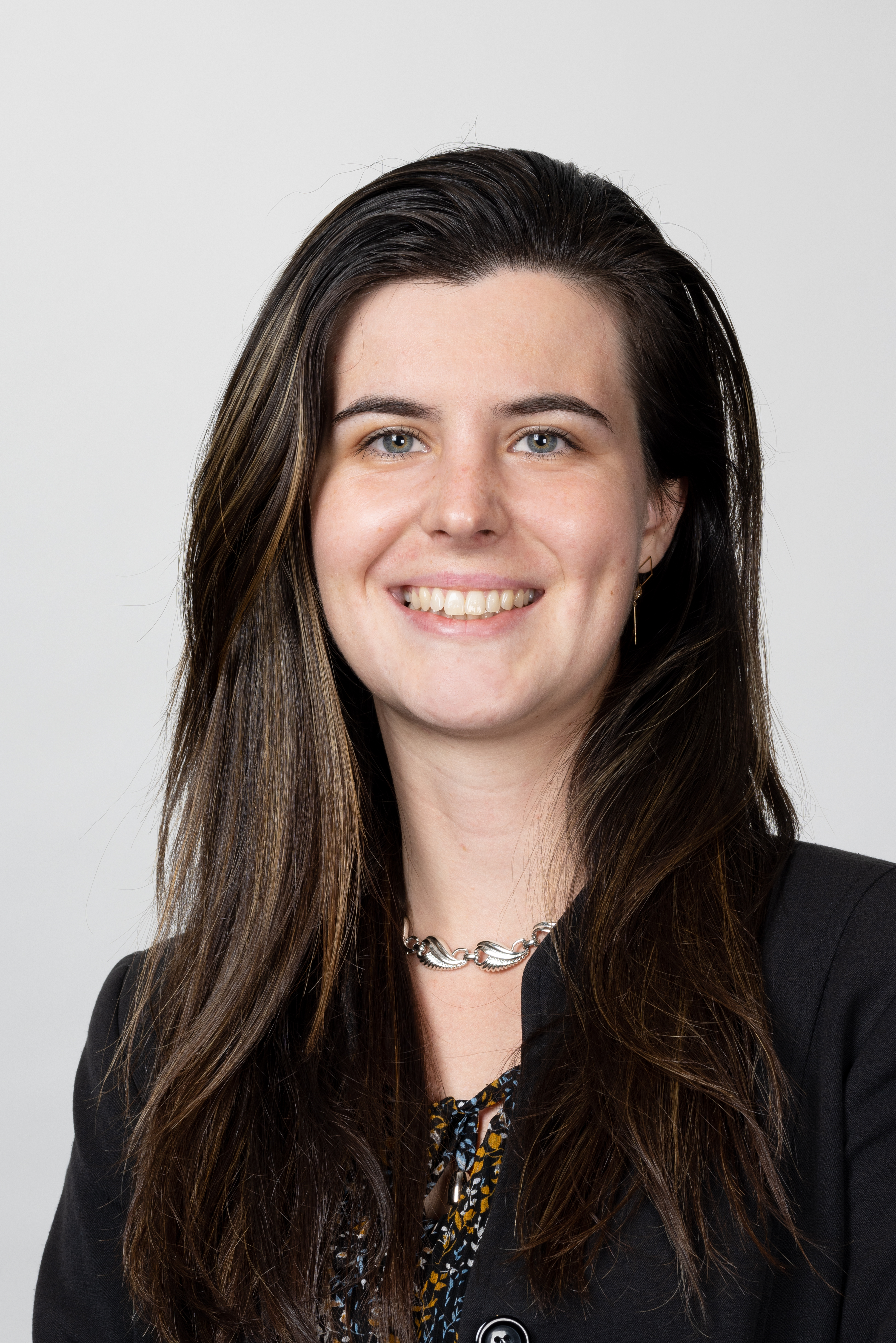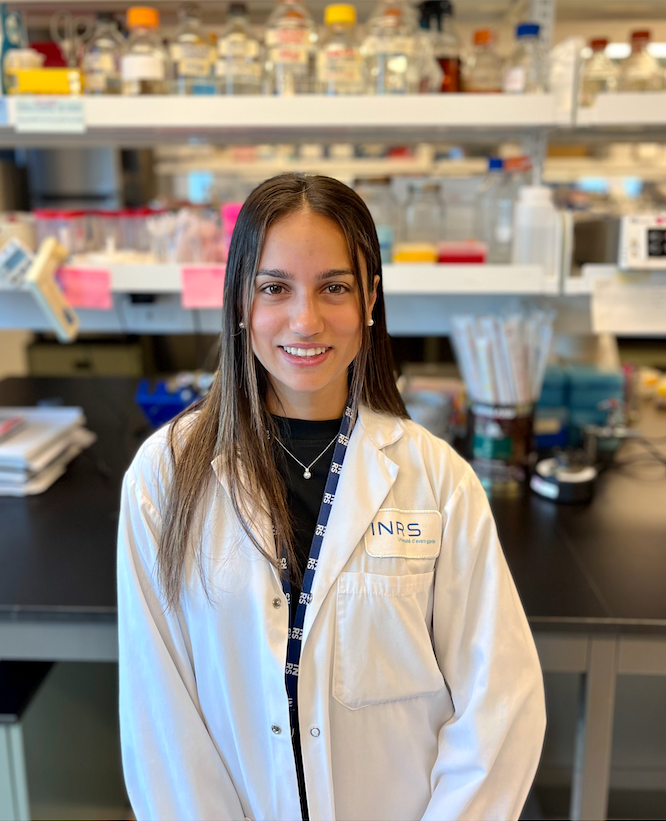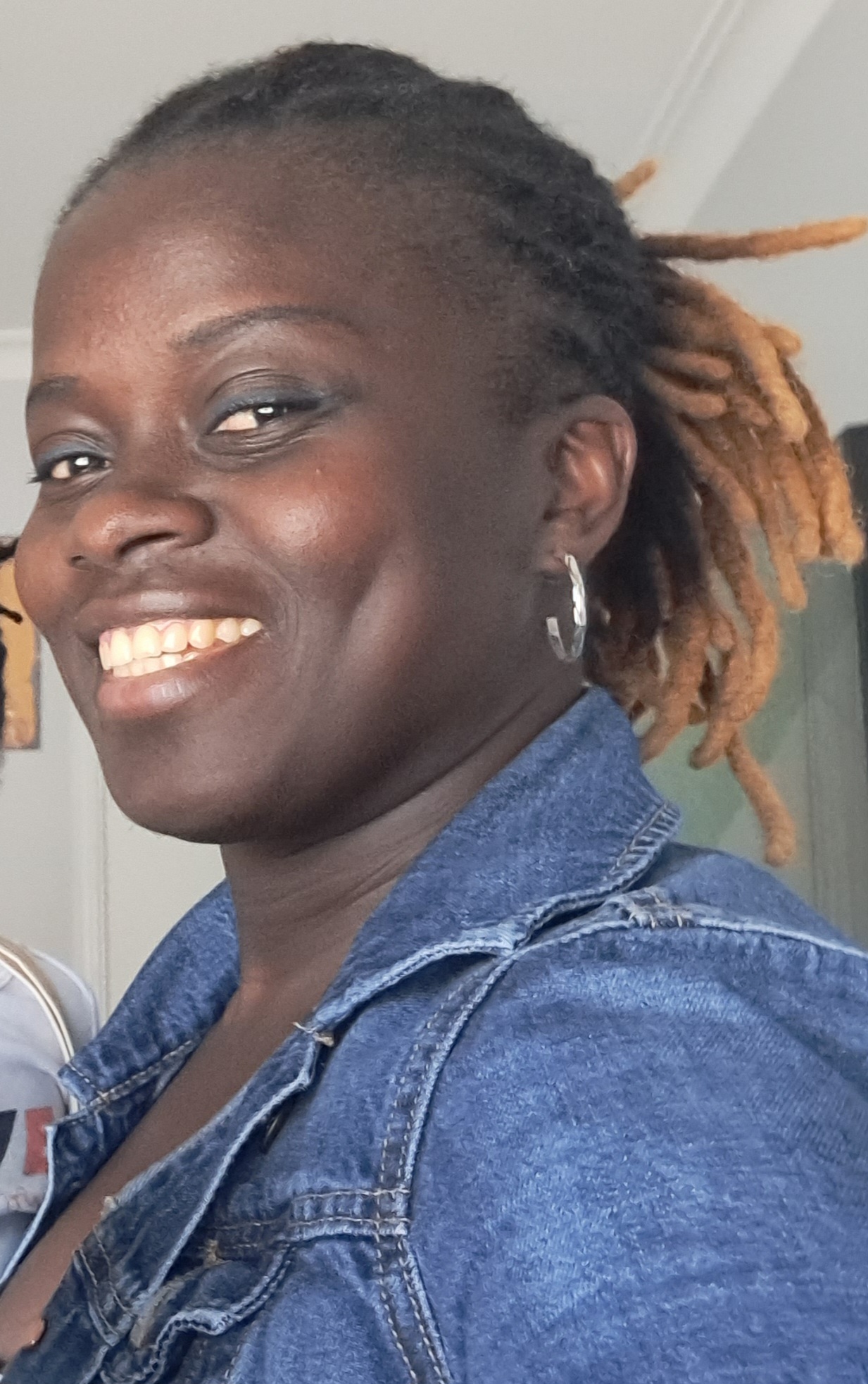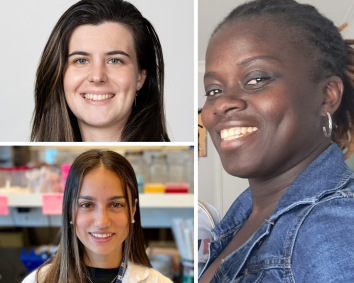No fewer than three students from the Institut national de la recherche scientifique (INRS) are this year's recipients of an Arbour Foundation scholarship. Ludivine Lafosse and Rita Nehmé, who win the scholarship for the second year running, and Ablema Sephora Tanoe, who wins an Arbour Foundation scholarship for the first time this year, share $67,500.

“I'm both delighted and relieved to have been awarded a second Arbour Foundation bursary.
Happy because my personal and professional path, my doctoral studies and my various social involvements are recognized and encouraged by the Foundation. Relieved because this bursary will enable me to overcome the financial difficulties that also weigh heavily on a large number of Québec students. I can now concentrate fully on my studies.
A very big thank you to the Arbour Foundation for this second bursary and for the values that the Foundation represents. I would also like to sincerely thank my mentor at the Foundation for his unfailing support. I look forward to meeting the other scholarship students and learning about their impressive journeys.”
— Ludivine Lafosse, PhD student in water sciences, under the supervision of Professor Jacob Stolle

“I am very grateful for the continued and generous support of the Arbour Foundation in my PhD journey. The renewal of the scholarship allows me to devote myself to a field I am passionate about and to my research activities for the development of a treatment for triple-negative breast cancer. I'm also happy to be part of their network, which offers me invaluable professional opportunities.”
— Rita Nehmé, Ph.D. student in virology and immunology under the supervision of Professor Yves St-Pierre
We sat down with Ablema to find out more about her background and her reaction to winning the scholarship. Here's what she shared with us.

What brought you to INRS and what do you remember about your experience?
In 2013, the decision to immigrate as a permanent resident to Québec, taken as a family with my spouse and our children, was mainly motivated by my desire to pursue my higher education. Indeed, during my master's years in Côte d'Ivoire, I discovered the many opportunities offered in Québec in the field of water treatment. That's why I chose INRS, because of the excellence and intensity of the research carried out here.
Since September 2023, I've been in my third year of doctoral studies, and I can say without reservation that I have no regrets about returning to my studies after a six-year break. At INRS, the teaching, logistical and human resources put in place are considerable assets that reinforce my career as a researcher at the Eau Terre Environnement (ETE) center. For example, the availability of my research director, Patrick Drogui, as well as that of the supervisory staff in the laboratories, IT department, building services and library, helps me to get the answers I need at the right time. This enables me to make significant progress in my work. In addition, my involvement as a volunteer in community organizations has greatly facilitated my integration into Québec society in general.
Can you describe the challenge and impact of your research project?
My research project aims to resolve the issue of decontaminating wastewater from vegetable washing operations on market garden farms, in partnership with the Institut de recherche et de développement en agroenvironnement (IRDA) and the Association des producteurs maraîchers du Québec (APMQ).
Conventional treatment of vegetable washing water (MWW) is sometimes less effective at eliminating certain pollutants from MWW before it is released into the environment. Our aim is to offer Quebec vegetable growers more effective, simple and automatable treatment systems. Hence the use of electrolytic processes such as electrocoagulation (EC) and electro-oxidation (EO), which have enabled us to achieve satisfactory results in such areas as the removal of suspended solids (over 90% with EC) and the elimination of neonicotinoid insecticides considered to be endocrine disruptors (over 90% with EO). Trials are continuing, with the aim of establishing a solid database for the electrotechnological depollution of ELM from the washing of various vegetables. This project proposes solutions that will enable vegetable growers to meet government discharge standards, which have become more stringent. In addition, the use of EC and EO would help growers save time compared with existing lagooning processes, which take several days to remove certain pollutants from ELM.
What does winning this scholarship mean to you?
I'd like to thank the Arbour Foundation for this financial support. Winning this bursary is recognition of my efforts and hard work. It is also an encouragement to continue to give my best to my studies. The bursary is a financial boost, enabling me to maximize my time and energy on my research work.
Going back to school has allowed me to step out of my comfort zone and push the boundaries in the face of everyday challenges. I love what I do, so I plan to stay in the research field after my PhD. Finally, I intend to put my acquired skills to good use in the community by continuing to volunteer.
— Ablema Sephora Tanoe, PhD student in water sciences under the supervision of Professor Patrick Drogui
These young researchers are inspiring examples for the entire student community, and we are proud to support them in their academic and professional careers. Congratulations to our three exceptional students, who have distinguished themselves through their academic brilliance, passion and dedication.
The INRS Foundation extends its warmest thanks to the Fondation Arbour for its invaluable financial support of our students' studies. The success of our scholarship recipients will be celebrated at a scholarship ceremony at the Centre Armand-Frappier Santé Biotechnologie, on October 10 at 2 p.m., and at the Centre Eau Terre Environnement, on October 31 at 1:30 p.m. We warmly invite all members of the INRS community to join us in celebrating these talented and promising individuals.

